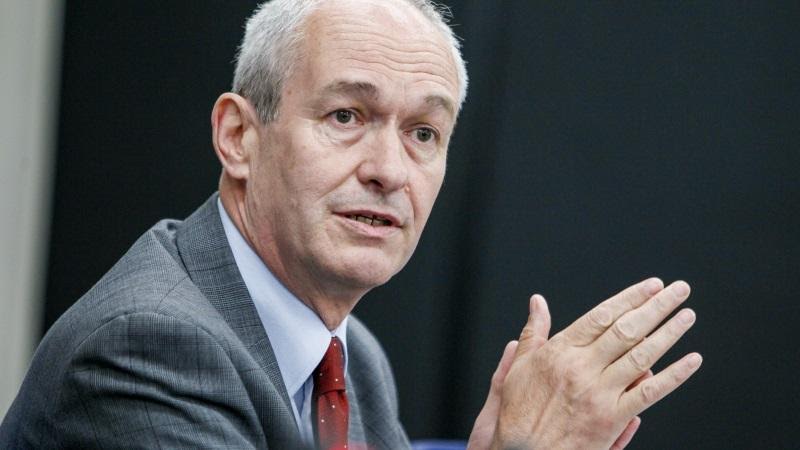
While we are all focused on the pandemic and its consequences, Boris Johnson’s government is busy trying to rip up all the promises it made to get Brexit done. The Tories hope to get away with making far-reaching choices that will have huge consequences for every family in Britain.
Like Theresa May’s deal, Johnson’s withdrawal agreement was a ‘blindfold Brexit’: leaving without detailing what would replace the myriad arrangements, laws and programmes that we were hitherto part of. Sorting that out was left for the post-Brexit transition period.
During this period, which we are now in, the status quo applies. Britain is still subject to EU rights and obligations. But if there is no agreement by the end of the transition period, currently set at the end of the year, we will have the notorious no-deal Brexit. As was well rehearsed last year, no deal means the sudden ending – without replacement – of all existing arrangements.
For trade, no deal means falling out of the customs union and implementing, overnight, a customs border and tariffs under World Trade Organisation rules with our main trading partners. We would be penalising our exports and disrupting our supply chains, putting countless jobs in jeopardy.
It would also mean dropping out of all the trade deals between the EU and the rest of the world before we secure our own separate deals to replace them. And for security, it would mean ending the shared databases that enables us to better police our borders and to cooperate in fighting cross-border criminal gangs and traffickers.
At a purely practical level, it would cause havoc for a host of things we take for granted – from the validity of car insurance when travelling abroad to roaming charges, free hospitalisation when ill on holiday, cross-border child custody judgements and much else. To avoid this situation, we need an agreement. But the talks are not going well. Indeed, according to some of those involved, they are at crisis point. Two key sticking points are:
- The UK is demanding full access to the EU market without committing to a level playing field in terms of social and employment standards, environment, climate change, fair competition and relevant tax matters; and
- It wants access to the police databases and European Arrest Warrant, without guaranteeing to uphold the safeguards and protections laid down in the European Convention on Human Rights.
In taking this position, the government is reneging on its previous commitments. The political declaration that accompanied the withdrawal agreement, approved by both parliaments, set out what both sides agreed to negotiate for their future relationship. Without that, the withdrawal agreement would not have been ratified. But now the government is virtually tearing up those commitments. It is also failing to implement the provisions of the already ratified legally binding protocol on Northern Ireland customs checks.
This is urgent because the transition period ends in seven months’ time. Few people believe it is possible to agree – and get approval from all parliaments involved – such a comprehensive deal by then, even without the delays caused by the Covid-19 crisis. And as a safety mechanism, the withdrawal agreement provides for the possibility of extending the transition period, by either one or two years, through a single joint decision taken no later than June 30th – six months before the cliff edge, so that everyone can prepare.
To everyone’s astonishment, Johnson has ruled out making such an extension under any circumstances, even after several negotiating sessions were cancelled due to key negotiators contracting Covid-19. This is despite the fact that a no-deal situation in December would amplify the economic damage already being inflicted by lockdown. Many are concluding that Johnson actually doesn’t want a deal. Phil Hogan, the Irish EU trade commissioner, said: “There is no real sign that Britain is approaching trade talks with the EU with a plan to succeed, and it appears set to blame any post-Brexit fallout on the economic shock from Covid-19.”
The neoliberal right of the Tory party was always opposed to any deal with the EU that keeps Britain aligned with EU standards. The very reason that they wanted Brexit in the first place was because the single market has rules to protect consumers, workers and the environment – protections that they want to escape from to have a Donald Trump-style, corporate free-for-all deregulated economy. They also want Britain to align economically and strategically with the USA rather than with our European neighbours.
The one thing that previously held them back was the fear that they would be blamed for the economic fallout of a disorderly no-deal Brexit. Now, they reckon that their big chance to get away with it is by hiding the costs – the job losses and the fall in living standards – among the affects of the coronavirus lockdown. We must not let them get away with that.




More from LabourList
‘Help shape the next stage of Labour’s national renewal through the 2026 NPF consultation’
‘AI regulation is key to Labour’s climate credibility’
Ben Cooper column: ‘Labour needs to rediscover its own authentic populism’